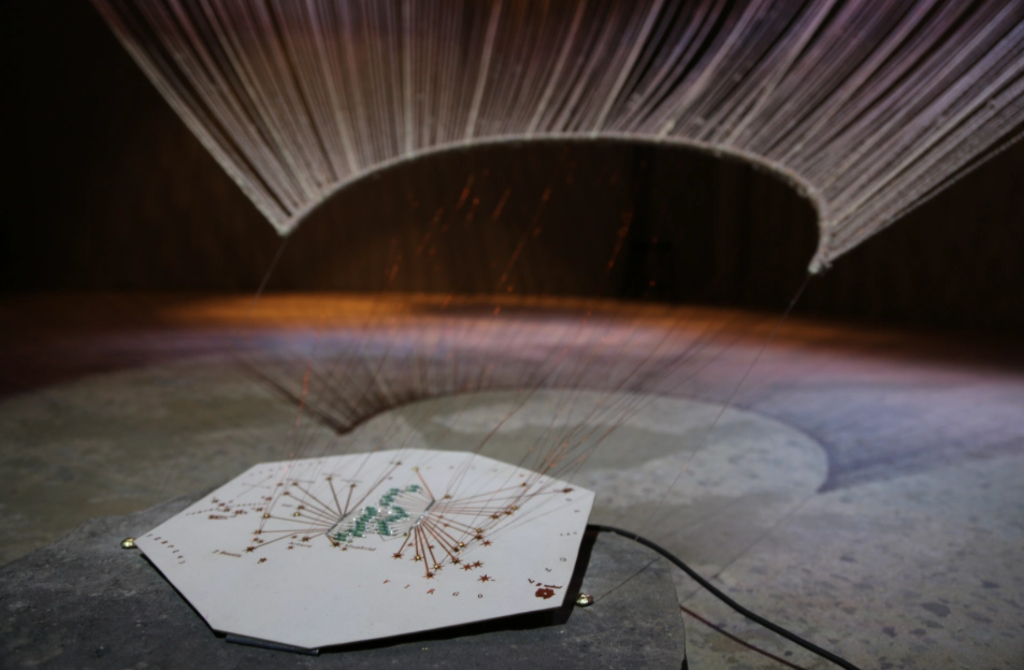Text by CLOT Magazine

Visual artist, dancer and researcher Constanza Piña Pardo focuses on electronic experimentation, open-source technologies and social practices. Her work reflects on the role of machines in our culture, questioning education, capitalism and techno-centrist patriarchy.
On May 25, in the context of the group exhibition and interdisciplinary international conference Hackers, Makers, Thinkers organised by Art Laboratory Berlin, Constanza Piña Pardo will carry out the workshop Khipu Dialogues.
The Inca khipu are textile devices for recording information, made of cotton or camelid fibre strings that store data coded as knots. This piece is an open-source textile computer based on the manufacture of astronomical khipu, whose cords were hand-spun with alpaca wool and copper wire.
Piña Pardo explains that the project Khipu is a sound and arts interpretation of our ancestors’ technology, wisdom, and history, meant to express how harmonious numerical proportions govern the universe. What we are hearing now is thus the amplification of inaudible Space, the voices of spectres visiting the void, a celestial score, the music of the spheres: the voice of silence.
In the workshop, Khipu Dialogues, Piña Pardo will give an insight into her artistic research project khipu. electrotextile prehispanic computer, in connection to her, currently exhibited installation, khipu at Art Laboratory Berlin. The workshop can also be understood as a ritual of connection with the original khipus, whose most extensive collection worldwide is currently found at the Berlin State Museums, far from their original territory.
Later on, on May 28, and as part of the conference, the Indonesian women’s team XXlab, including Irene Agrivina, will also hold the SOYA C(O)U(L)TURE workshop. The Soya C(o)u(l)ture project aims to use a simple kitchen as a laboratory to transform wastewater into usable biomaterials. Irene will talk about the process, show samples and then help participants make eco-prints using easily available materials such as flowers and leaves.
Registration and information about these two workshops can be found here.






